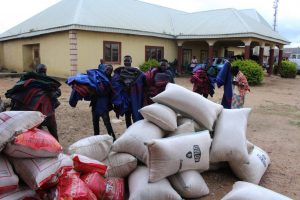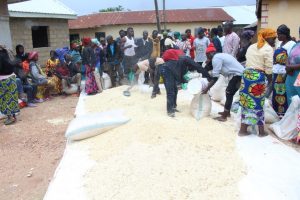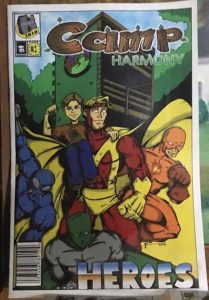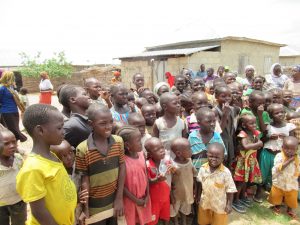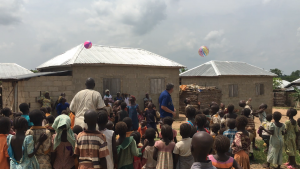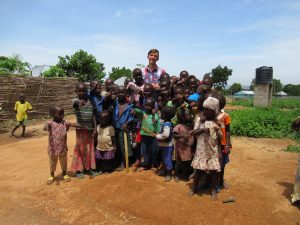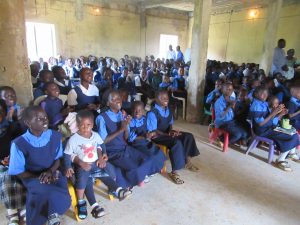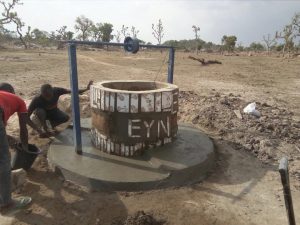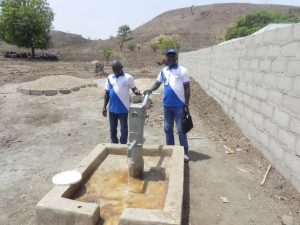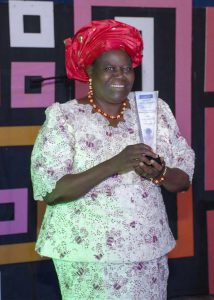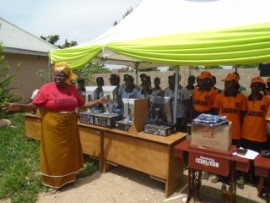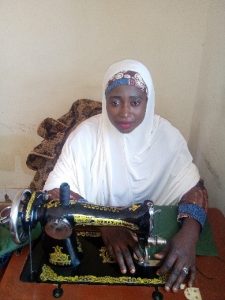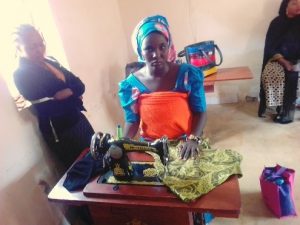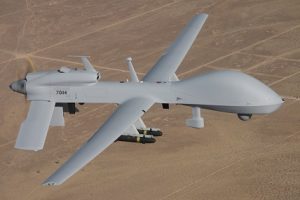The following blog is a guest post from David Young, the founder of Capstone Community Gardens in New Orleans. You can learn more about his work at www.capstone118.org.
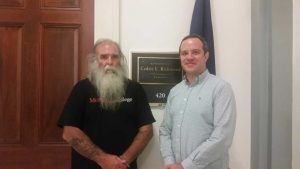
I had the opportunity to be in Washington D.C. from September 20 through 23, 2017. This was made possible by the Church of the Brethren Office of Public Witness and the Global Food Initiative. The main purpose was to do a presentation with Nathan Hosler of the Office of Public Witness, at the University of D.C. during their Urban Agriculture Symposium and Association of Vertical Farmers Summit. Our presentation topic was: Food and Faith; The New Orleans Story of the Church of the Brethren. It ended up being so much more than that.
One of the things the Office of Public Witness does is look at policy and how they effect Brethren and projects of the Brethren.
Having had previous meetings and discussions with Nathan he was familiar with some of the challenges Capstone faces as an urban farm. One of those is being in the Lower 9th Ward of New Orleans. Orleans Parish (county in other states) has a 100% urban designation by USDA which prevent us from using many of the benefits USDA makes available to those with rural designation.
Nathan and Tori from the Office of Public Witness arranged for me to meet with staff of the three legislators from Louisiana. Within a few hours of arriving I found myself on Capitol Hill, spending about 30 minutes with each staff person, explaining how federal, state, and local policy effect how we can operate with our mission to grow food and share it with those in need.
One of the most pleasant surprises was a World Day of Peace service at the Washington City Church of the Brethren. Multiple churches of different denominations worked together to coordinate the service on the evening of September 20th, a day early, since Nathan and I would be occupied at the symposium on the 21st. The garden theme was included as part of the service. It was a nice gathering with a handful of denominations represented as one worshiping and praying for peace.
The Urban Ag Symposium started with Nathan and I doing a brief TV interview about what the Office of Public Witness provides and the community mission of Capstone. Since the mid 70’s I have understood the important role our land grant colleges play with agriculture. The University of D.C. is the only Urban Land Grant College. I also found it surprising to hear the Dean of the University talk about the faith based involvement the university has.
Later that afternoon Nathan and I completed our presentation at the symposium which was well received. The symposium partnered with the Association of Vertical Farmers. There were presentations that talked about some of the various vertical farming systems. Capstone has a combination of in -ground farming, elevated farming (raised beds), as well as some vertical farming with the aquaculture systems.
The second day started the Association for Vertical Farming Summit. The make-up of those in attendance changed from the previous day. The Vertical Farmcing Summit included more people who held titles of Scientist, PhD, Artificial Intelligence (A.I.).
There was dialogue and presentations on controlled environment, high capacity, 6 to 30-foot-high vertical growing systems. Complete grow systems self-contained in shipping containers. There was also an emphasis on using technology and Artificial Intelligence to analyze and evaluate plant needs. This ranged from mini drones gathering samples in mid-air to leaf mounted cameras and scopes.
Going back to when I was part of commercial agriculture in the late 70 and 80’s and currently doing urban farming I ask, what are you testing for? Most people I know now typically do more harm to their crops by overreacting to the test results. The group agreed with me. I’ve never tested much, I look at the plant and figure out what if any corrections I should take. The group said we don’t have that experience or knowledge to do that.
It comes very close to feeling like I’m watching a movie that was made a long time ago and this would have been considered sci-fi. I found myself in unfamiliar territory as I ask myself are these scientists, PhDs, and Artificial Intelligence people our next generation of farmers even though they admit they don’t have any experience in growing food. One representative from USDA said this type of farming will never replace conventional farming.
One three story vertical system in Jackson Wyoming cost 4.5 Million dollars to build. While they are at the other end of the spectrum of production and a for profit business I think back to my first two seasons with the gardens at Capstone. 4’x14’ and I spent $100 each growing season. If someone wanted to help I asked them to bring the plants or seeds they wanted to have grown. We’ve grown considerably since then. Going to the Garden Grants and Global Food Initiative grants have been beneficial to our success. Even as we continue to grow I feel we maintain a solid well-grounded relationship between the food we grow and our community we share it with.
On the last day, we took a tour of two urban gardens that were operated by Cultivate the City. These two gardens have a combination of raised and vertical farming and are doing some aquaculture. Even though both were rooftop gardens these gardens had a more familiar feel to them. At one farm the founder said we have people water the plants with a watering can. I feel it makes them more attuned with what they are growing. Quite a contrast to having micro drones collect samples.
Here is where I share my lack of following sports or having TV coverage. While I was in Washington I kept seeing a large cursive “W”. I kept thinking a certain large drug store chain was doing a lot of advertising. It was only when we went to the baseball stadium to see their roof top garden and the “W” was more prominent that I realized the “W” was for the Washington sports teams.
In D.C. there are many rooftop gardens because there is a storm water fee. If you allow storm water to openly drain away from a building or hard surface such as a parking lot you pay a fee on that. The roof top gardens make flat roof areas green space for growing plants or food which in turn offers relief from the storm water fee.
The University of D.C has a large green roof including a greenhouse. They grow succulents as well as produce. At the baseball stadium, the roof top gardens are on top of the concession stands. You open a gate on an upper level in the parking garage, climb up a ladder, down the other side of a wall, and onto the roof. It’s covered with hundreds of milk crates. Each milk crate contains a 5-gallon bag made of recycled material. This holds soil or compost and the plants.
One benefit to this type of garden is if you have to relocate the garden due to turning over ownership of the site or other factors you simply pick up the milk crate with the soil and plants, load them and move them to their new location. When we harvest honey, we put the 5 gallons buckets containing honey in a milk crate to make them more stable for transport and easier to handle.
While the material expense may be above our budget I think the concept in an urban setting is great. Having rehabbed a total of 40 lots in the Lower 9th Ward and returning many of them to families or organizations who decided it was time to develop that property it would have made things much easier in some cases to be able to just load the entire garden on a trailer and move it to another site.
I don’t know that my visit to D.C. is going to change anything or even influence any of the policy decisions. I do know the response from several of the smaller urban farms has been positive as we look to continue the discussion and enhance our relationships and collaboration.



